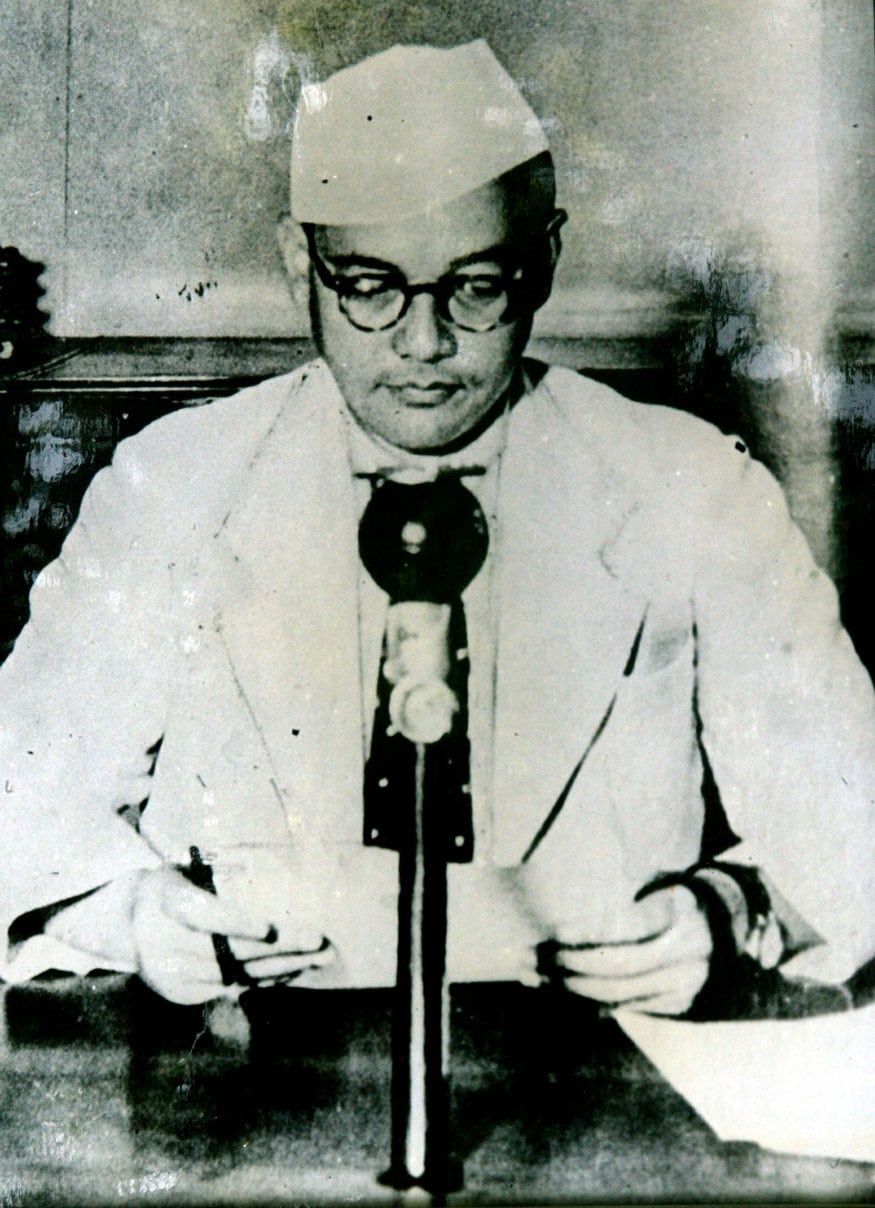
"...It is our duty to pay for our liberty with our own blood. The freedom that we shall win through our sacrifice and exertions, we shall be able to preserve with our own strength......" Netaji Subhas Chandra Bose to the Indian National Army in Malaya/Singapore

The Indian National Army (INA) was originally founded by Capt Mohan Singh in Singapore in September 1942 with Japan's Indian POWs . This was along the concept of- and with support of- what was then known as the Indian Independence League,headed by expatriate nationalist leader Rash Behari Bose. The idea of a liberation army was revived with the arrival of Subhas Chandra Bose in the Far East in 1943. In July, at a meeting in Singapore, Rash Behari Bose handed over control of the organisation to Subhas Chandra Bose. Bose was able to reorganise the fledging army and organise massive support among the expatriate Indian population in south-east Asia, who lent their support by both enlisting in the Indian National Army, as well as financially in response Bose's calls for sacrfice for the national cause. At its height it consisted of some 85,000 regular troops, including a separate women's unit, the Rani of Jhansi Regiment ( named after Rani Lakshmi Bai), which is seen as a first of its kind in Asia.
 Spoken as a part of a motivational speech for the Indian National Army at a rally of Indians in Burma on July 4, 1944, Bose's most famous quote was "Give me blood, and I shall give you freedom!" . In this, he urged the people of India to join him in his fight against the British Raj. Spoken in Hindi, Bose's words are highly evocative.
Spoken as a part of a motivational speech for the Indian National Army at a rally of Indians in Burma on July 4, 1944, Bose's most famous quote was "Give me blood, and I shall give you freedom!" . In this, he urged the people of India to join him in his fight against the British Raj. Spoken in Hindi, Bose's words are highly evocative.The INA's first commitment was in the Japanese thrust towards Eastern Indian frontiers of Manipur. On the Indian mainland, an Indian Tricolour, modeled after that of the Indian National Congress, was raised for the first time in the town in Moirang, in Manipur. Bose had hoped that large numbers of soldiers would desert from the Indian Army when they would discover that INA soldiers were attacking British India from the outside. However, this did not materialise on a sufficient scale. Instead, as the war situation worsened for the Japanese, troops began to desert from the INA. At the same time Japanese funding for the army diminished, and Bose was forced to raise taxes on the Indian populations of Malaysia and Singapore.
Sankalp Unit
